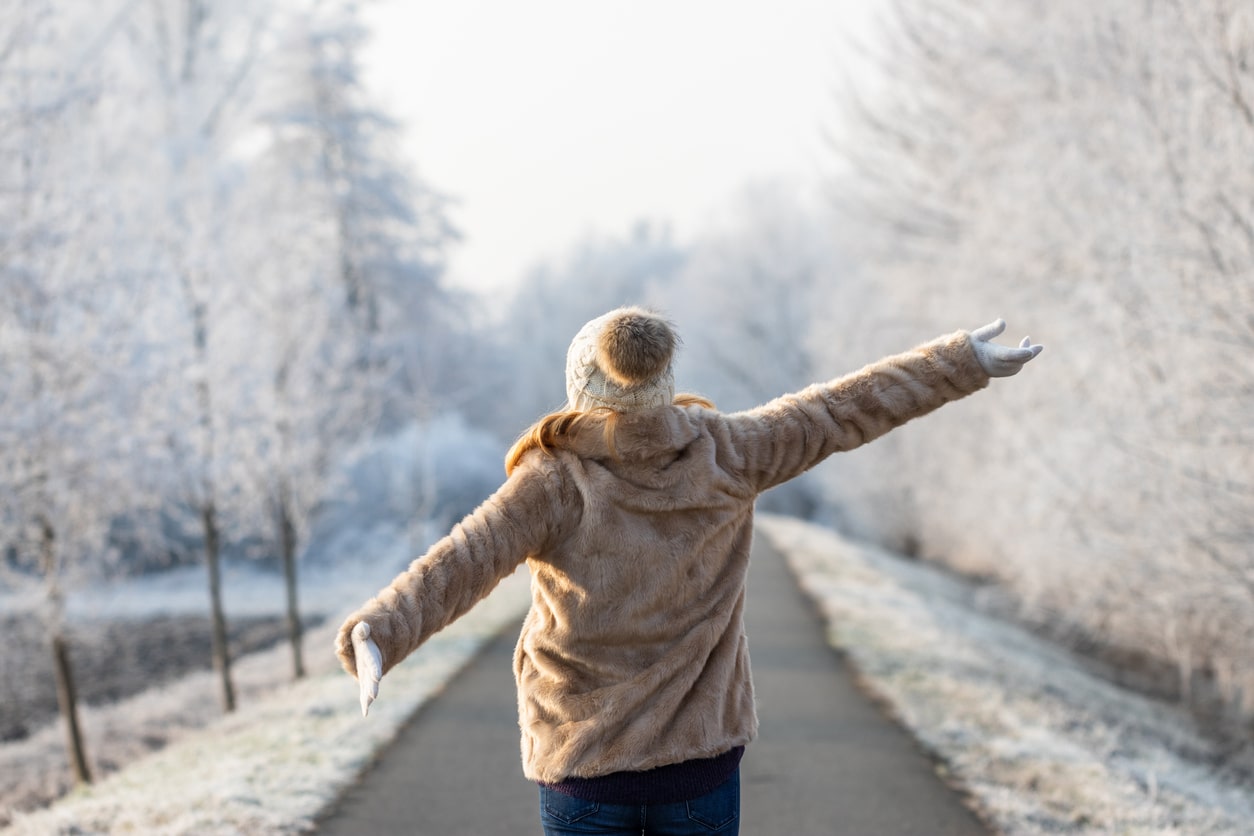Winter can make staying healthy, active and safe a real challenge for seniors, but a little diligence can pay off. Rather than hunkering down and waiting for spring, take these tips from experts to make the most of winter and maybe even enjoy it!
6 Tips for Staying Active, Healthy and Safe
Tip #1 – Don’t back-slide on exercise
It’s so easy to get enough exercise in the summer, but when winter arrives it can be tempting to slack off from normal exercise routines. Fortunately, however, there are ways to avoid back-sliding on exercise. One of the easiest is to maximize housekeeping. According to the verywellfit.com article, “Burn More Calories While Cleaning Your House,” with a few changes, daily chores can become part of an exercise routine that is comparable to a trip to the gym.
Using exercise equipment is another option or try online exercise classes offered daily by the senior fitness experts at SilverSneakers®. Among the many possibilities are line dancing, seated strength, cardio mix, and mindfulness and meditation. Available at no cost to people 65+ through many Medicare plans, SilverSneakers® classes are also available at gyms throughout the country.
Tip #2 – Dress for the weather
Indoors or outdoors, one of the most important winter tips for seniors is to dress appropriately. One of the best practices is to layer clothing as outlined in the outsideonline.com article, “The Definitive Guide On How to Layer for Cold-Weather Adventures.” Obviously hats, mittens and scarves aren’t needed indoors but layering will help seniors retain body heat wherever they are.
One thing to keep in mind is that when layering for outdoor activity, it’s best to choose base-layer fabrics that “wick” moisture away and dry quickly rather than absorbing it. For a look at what the researchers at the Good Housekeeping Institute recommend, check out the article, “The Best Thermal Underwear to Keep You Warm, Tested by Experts.”
Tip #3 – Stay hydrated
Summer’s heat may seem like the greatest threat to staying hydrated, but winter can make staying well hydrated tricky too. According to the heart.org article, “Are you drinking enough water during winter months?,” the very cold temperatures and dry warm air from heating systems can contribute to dehydration in seniors. The article defines several ways to stay hydrated, including keeping a water bottle handy all the time, drinking warm water, tea, or broth, limiting caffeine and alcohol, and eating foods like fruits and vegetables that have high water content.
Tip #4 – Embrace the sunshine
Winter is often overcast which means seniors may not get all the sunshine they need to stay healthy. Sunshine is considered essential to the production of vitamin D and serotonin, which can bring about Seasonal Affective Disorder (SAD). The National Institute of Mental Health article, “Seasonal Affective Disorder,” explains this condition and associated mood changes like sadness, anxiety, hopelessness and worthlessness. SAD may also cause fatigue, problems sleeping, trouble concentrating and other undesirable symptoms. Although taking vitamin D supplements may help, getting as much sunshine as possible can help naturally. If SAD is suspected, always consult a physician before taking any over-the-counter medications.
Tip #5 – Understand medical conditions and winter hazards
For seniors who have certain medical conditions, winter’s cold can make it more difficult to stay safe and warm. According to the nia.nih.gov article, “Cold Weather Safety for Older Adults,” these include:
- Diabetes, which can impede blood flow, especially to the extremities.
- Parkinson’s disease and arthritis that can make dressing and moving difficult.
- Thyroid problems that impact the ability to maintain a normal body temperature.
- Memory problems that cause seniors to forget to dress well and may cause them to make poor decisions relative to their well-being.
People with these conditions should always be aware of the complications that can occur in winter and should limit time spent outdoors, especially if alone.
Tip #6 – Hypothermia: Know the signs
No one is exempt from the threat of hypothermia, but according to the my.clevelandclinic.org article, “Hypothermia,” seniors are especially susceptible due to their decreased ability to control body temperature, less body fat and a lower ability to stay active. As a result, extended exposure to the cold can lower overall body temperature from the normal 98.6 degrees to less than 82.4 degrees, which can result in death. While mild hypothermia is easily cured by warming up indoors, as the body’s temperature drops through the moderate and severe stages of hypothermia, immediate medical help may be required.
At Ganton’s Countryside, we help our residents stay safe, healthy and active year-round with a range of amenities and activities designed just for them. For more information about Countryside, please call Margaret Nagel at (517) 206-5000 or download our brochure to learn about our care levels, cost, and amenities.


